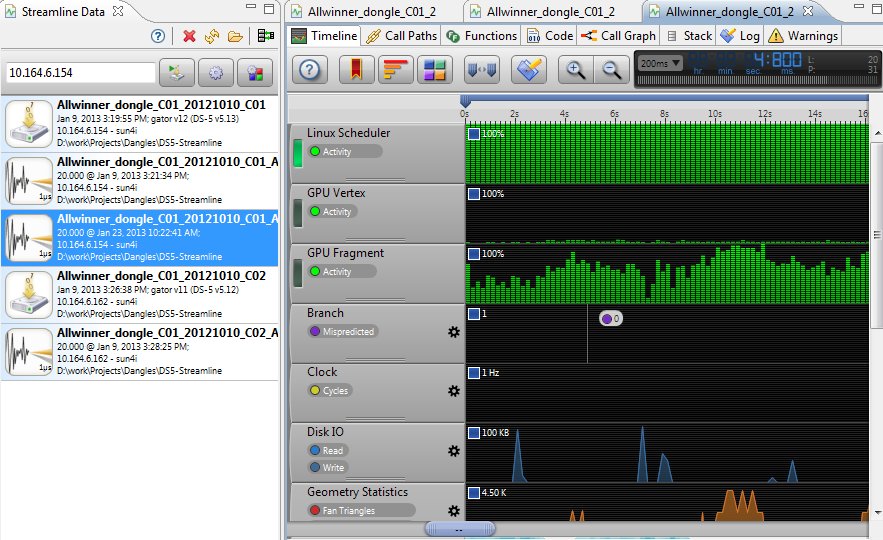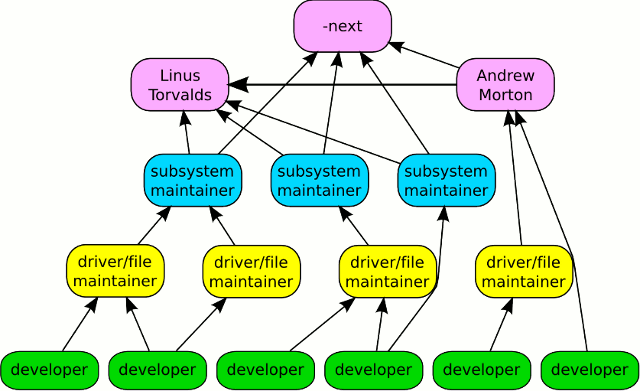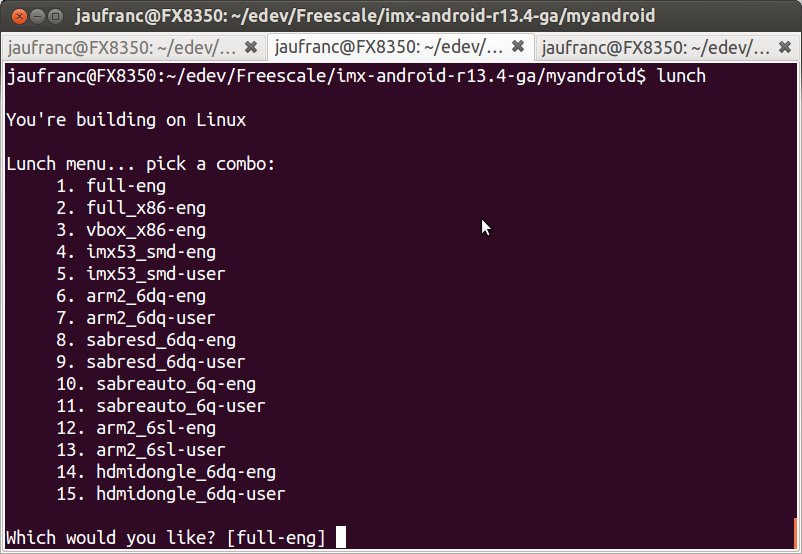The Yocto Project Release 1.4 has just been announced. This release codenamed “Dylan” and based on Poky 9.0.0 is the sixth release of the project. The Yocto Project is a framework that creates embedded Linux distributions, and has been getting more and more traction with silicon vendors such as Intel, Freescale and Texas Instruments. Yocto Project 1.4 bring the following new features and updates: Major performance improvements – The overall build time has been reduced by more than 10%. Kernel build time is reduced by about 25%. With rm_work enabled, 40% less storage will be used for the tmp directory. Smart, a replacement for zypper Support for read-only rootfs Wayland support, an X replacement. Systemd support, a replacement for the system V init daemon. Usability improvements to HOB, bitbake, yocto-bsp and other tools, including UI improvements, new features and bug fixes. Documentation improvement/update and a new kernel development manual and […]
Linaro 13.04 Release With Linux Kernel 3.9 and Android 4.2.2
Linaro 13.04 has just been released. It features Linux Kernel 3.9-rc7 and Android 4.2.2. A lot of work has been done on ARMv8 (Cortex A53) with further work on OpenEmbedded, more testing, and updates to the GCC toolchain. Calxeda EnergyCore server has been added to LAVA, Origen Quad now gets hardware video acceleration in Android Jelly Bean. Still more cleanup has been done on the kernel side with regards to Samsung and ST SoC, and a big.LITTLE porting guide is now available (linaro login required). Here are the highlights of this release: LAVA Prototype of a new publishing system is used to overcome performance problems with android-build.linaro.org. Calxeda EnergyCore support is merged in LAVA, and an isolated system has been set up for web benchmarking. Fedora support is merged in LAVA. A user can submit LAVA jobs using a Fedora pre-built image. Boot commands are untangled from LAVA dispatcher. They’re now […]
Using ARM Development Studio 5 (DS-5) Streamline with MK802II mini PC
MK802-II is an Android 4.0 mini PC powered by AllWinner A10 (ARM Cortex A8) with 1GB RAM and 4GB flash. Instructions are also available to run Ubuntu, or other Linux distributions. ARM Development Studio 5 (ARM DS-5) is software development tool suite for ARM processors that can be used for both Linux and Android debugging, and available in 2 versions: professional edition and community edition, the latter being free of charge. I’m writing about both today, because Bob Peng, Technical Marking Engineer for ARM China, recently wrote a blog post in Chinese [Update: An English version is now available] showing how to use MK802-II, preloaded with the required drivers and daemon, with DS-5 Streamline Performance Analyzer with is part of both versions. The community edition may be missing some features of Streamline however. Streamline Performance Analyzer allows you to: Find out which modules or functions to take up most of […]
Design West Summit – 23-25 April 2013
Design West 2013, previously known as the Embedded Systems Confertence, will take place later this month, on 23-25 April to be exact, at San Jose McEnery Convention Center in San Jose, California, US. The event will be divided into 22 tracks dealing with software development, hardware design, operating systems, security and more: Android Certificate Program – Two-day hands-on embedded android workshop. Black Hat Summit – The Black Hat Embedded Security Summit will provide electronics professionals with essential information and tools, as well as a forum for the discussion and evaluation of the latest solutions for securing their embedded systems. Training courses will focus on topics such as Network Security, Incident Response, Web Application Security, and Exploit Development. Connectivity and Networking – The Connectivity and Networking track educates design engineers on wired and wireless communications, spanning need-to-know topics from essentials of USB device development to antenna and RF system design. Debugging […]
Linaro 13.03 Release with Linux Kernel 3.9 and Android 4.2.2
Linaro 13.03 is now available, and features Linux Kernel 3.9-rc3 and Android 4.2.2. This month, Linaro has released their first Origen Quad Android image, as well as Tiny Android build for Arndale. The ALIP image listed in the download page is still based on Ubuntu 12.11, but as doc Bormental noticed earlier this month, the latest ALIP Quantal 13.03 image is available for download at https://releases.linaro.org/latest/ubuntu/quantal-images/alip. Some development tools (gcc, g++, vi, make..) are now included in Android, so you can develop and build natively from your Android device. Linaro has kept on cleaning the Linux kernel ARM tree for Exynos and ST Ericson SoCs. More work has been done on big.LITTLE for both IKS and HMP, as well as ARMv8 OpenEmbedded, and an initial GRUB port on ARM UEFI is now available. Here are the highlights of this release: Automation and Validation A simple CLI tool for communicating with […]
Linaro Connect HK Greg Kroah-Hartman Keynote: “I Don’t Want Your Code!”
If you are a developer interested in getting your code into mainline, Greg KH keynote at Linaro Connect 2013 Hong Kong is probably worth a watch. In this presentation entitled “I Don’t Want Your Code! Linux Kernel Maintainers, why are they so grumpy?”, he first describes the large amount of patches they receive (7.28 patches per hour for kernel 3.8.0), gives some statistic about developers and companies involved with the kernel (about 20% is done by individuals), tells the audience they should submit the kernel code during SoC emulation/simulation stage, so that it’s accepted and ready to use when customers get the silicons (like Intel does), and quotes Intel and IBM executives saying “Working upstream saves time and money”. He then moves on what he does not want to see (and gets a lot): patch series with missing patches, email signature saying it’s confidential (since Linux development is done publicly, […]
Developer Community for Freescale i.MX6 HDMI Dongles
Last week, I explained how to build U-boot, the kernel, and Android for Freescale i.MX6 HDMI dongle reference platform. Since them, there has been a bit more activity, with Richtechie releasing source code to some ARMTvTech members. However, this source code is very similar to the one released by Freescale, and misses some part present in the kernel config on GK802 such as CONFIG_MACH_MX6Q_RICHTECHIE, and the company clearly does not comply with the GPL. Let’s forget that for now, as Jasbir (who is also behind the Hackberry board) has managed to build and boot the kernel on his mini PC. There’s still more work to do, but at least we have a based to work on. In the meantime, I’ve noticed rz2k, an other developer, was also giving it a try on #arm-netbook Freenode IRC channel, so we decided to setup a few things to facilitate development and communication between developers. […]
U-boot, Linux Kernel, and Android Patches for Freescale i.MX6 HDMI TV Dongles
We can now get some quad core Android mini PCs (e.g. Hi802, GK802) featuring Freescale i.MX6Q processor, Freescale has released full documentation and source code its development platforms, Hi802 / GK802 HDMI TV dongles are easily hackable, and there’s even an Ubuntu image for the devices. So it looks pretty good ,right? Well almost.. there are some patches and config for GK802 that have not been released by Richtechie, so we can’t modify the bootloader and Linux kernel. But this may change, as ARMTvTech forum user hste noticed some Freescale i.MX6 HDMI dongle patches om IMX Community website. Even though I’m not sure those are fully compatible with Hi802 / GK802, this could be a starting point. Today, I’ll provide the instructions to build u-boot, the linux kernel and Android ICS with those patches in a machine running Linux 12.04 64-bit. Patch Sets Descriptions There are two set of patches that […]






